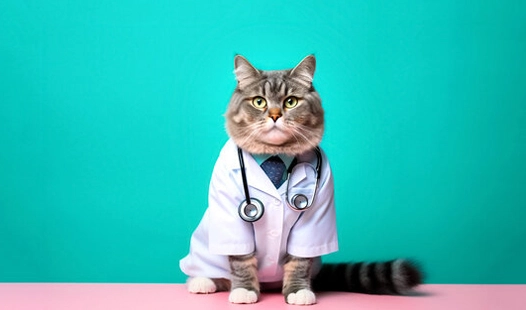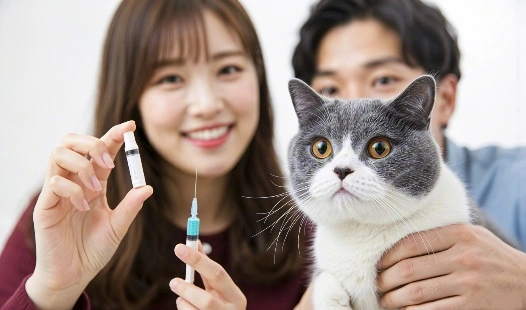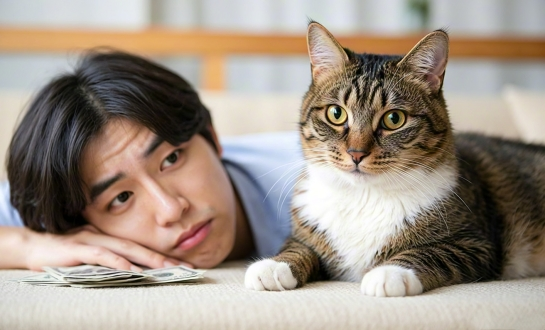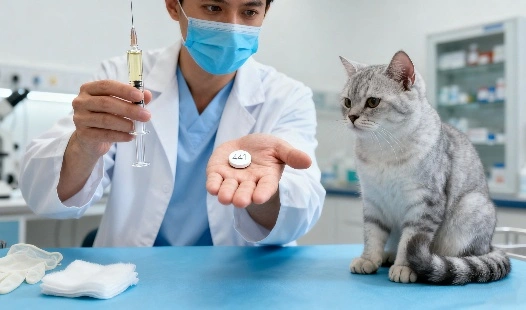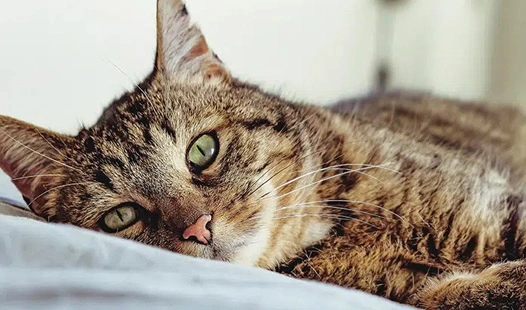Side Effects of GS 441524 and Strategies to Manage Them
Common Reactions: What to Expect?
There is hope for cat owners dealing with feline infectious peritonitis (FIP) as GS-441524 Injection been developed as a potential cure for this terrible condition. We must ensure that we are aware of the possible negative effects and how to successfully manage them, even if its effectiveness has been well demonstrated. For cats receiving GS 441524 therapy, this detailed advice covers typical side effects, ways to lessen their impact, and things to think about in the long run.
|
|
|
|
Common Reactions: What to Expect?
When administering GS 441524, cat owners should be aware of several potential side effects that may occur during treatment. Understanding these reactions can help in providing better care and support for feline patients.
Injection Site Reactions
One of the most frequently observed side effects of GS 441524 treatment is localized reactions at the injection site. These may include:
- Swelling
- Redness
- Tenderness
- Formation of small nodules
While these reactions are generally mild and self-limiting, they can cause discomfort for the cat. Rotating injection sites and proper injection technique can help minimize these effects.
Gastrointestinal Disturbances
Some cats may experience gastrointestinal upset during treatment with GS-441524. Common symptoms include:
- Nausea
- Vomiting
- Decreased appetite
- Diarrhea
These symptoms are often transient and may resolve as the cat's body adjusts to the medication. However, persistent or severe gastrointestinal issues should be addressed promptly with veterinary guidance.
Lethargy and Behavioral Changes
During the initial stages of treatment, some cats may exhibit:
- Increased sleepiness
- Reduced activity levels
- Changes in social behavior
These effects are often temporary and may be related to the cat's body fighting the FIP infection as well as adjusting to the medication.
|
|
|
|
Mitigating Gastrointestinal Distress
Gastrointestinal side effects can be particularly challenging for both cats and their owners. Implementing strategies to manage these symptoms can significantly improve the treatment experience and ensure better compliance.
Dietary Adjustments
Making thoughtful changes to a cat's diet can help alleviate gastrointestinal discomfort:
- Offer small, frequent meals instead of larger portions
- Consider easily digestible, bland diets temporarily
- Ensure access to fresh, clean water at all times
Consulting with a veterinarian about appropriate dietary modifications can provide tailored advice for each cat's specific needs.
Supportive Care
Additional supportive measures can help manage gastrointestinal symptoms:
- Probiotics to support gut health
- Anti-nausea medications as prescribed by a veterinarian
- Appetite stimulants if decreased food intake persists
These interventions should always be discussed with and approved by the treating veterinarian to ensure they do not interfere with the GS-441524 treatment.
Stress Reduction
Minimizing stress can positively impact a cat's gastrointestinal health during treatment:
- Provide a quiet, comfortable space for rest
- Maintain a consistent routine
- Use pheromone diffusers to create a calming environment
Reducing environmental stressors can help cats better cope with the physical demands of treatment.
|
|
|
Long-term Monitoring: Kidney and Liver Health
While GS 441524 has shown promising results in treating FIP, it's essential to monitor the long-term effects on vital organs, particularly the kidneys and liver. Regular veterinary check-ups and diagnostic tests are crucial for ensuring the overall health of cats undergoing treatment.
Kidney Function Assessment
Monitoring kidney function is vital throughout the treatment process:
- Regular blood tests to check creatinine and BUN levels
- Urine specific gravity measurements
- Monitoring for changes in urination patterns or water intake
Early detection of any kidney-related issues allows for prompt intervention and adjustment of treatment protocols if necessary.
Liver Health Evaluation
It is similarly crucial to assess liver function when treating with fip medication:
- Liver enzyme panels (ALT, AST, ALP)
- Bilirubin levels
- Monitoring for signs of jaundice or changes in appetite
Regular liver function tests can help identify any potential hepatotoxicity early in the treatment course.
Ongoing Veterinary Care
Establishing a comprehensive care plan with a veterinarian is crucial for long-term success:
- Scheduled follow-up appointments
- Adjusting treatment protocols based on individual response
- Addressing any emerging health concerns promptly
Consistent veterinary oversight ensures that cats receive optimal care throughout their treatment journey with GS 441524.
|
|
|
|
Conclusion
GS 441524 represents a significant advancement in the treatment of feline infectious peritonitis, offering hope to cats and their owners facing this challenging disease. While side effects can occur, they are generally manageable with proper care and monitoring. By understanding potential reactions, implementing strategies to mitigate gastrointestinal distress, and maintaining vigilant long-term health monitoring, cat owners and veterinarians can work together to maximize the benefits of GS 441524 treatment while minimizing discomfort for feline patients.
As research continues and clinical experience grows, our understanding of GS 441524 and its effects will undoubtedly expand, leading to even more refined treatment protocols and management strategies. The journey to combat FIP is ongoing, and GS 441524 stands as a testament to the progress made in feline medicine, offering a beacon of hope for cats affected by this once-devastating disease.
FAQ
1. How long do side effects typically last when using GS 441524?
Side effects from GS 441524 treatment can vary in duration. Injection site reactions may last a few days, while gastrointestinal symptoms often improve within 1-2 weeks as the cat's body adjusts to the medication. However, individual responses can differ, and persistent or severe side effects should be discussed with a veterinarian.
2. Can GS 441524 be used in combination with other medications?
The use of GS 441524 with other medications should always be under veterinary supervision. Some supportive treatments, such as anti-nausea medications or appetite stimulants, may be prescribed alongside GS 441524. It's crucial to inform your veterinarian of all medications and supplements your cat is receiving to avoid potential interactions.
3. Is it safe to continue GS 441524 treatment if my cat experiences side effects?
In many cases, mild to moderate side effects can be managed while continuing GS 441524 treatment. However, the decision to continue or adjust treatment should always be made in consultation with your veterinarian. They will consider the severity of side effects, the cat's overall health, and the response to FIP medication when determining the best course of action.
Experience the Difference with BLOOM TECH's GS-441524
The importance of using effective fip medication in treating fibromyalgia is something we at BLOOM TECH well grasp. As a trusted GS-441524 manufacturer, you can trust that veterinarians and cat owners will have access to a pure and dependable supply of this essential ingredient since we are committed to manufacturing quality. We guarantee that the GS-441524 we ship you will be of the greatest quality and purity by using our cutting-edge production facilities and stringent quality control procedures. If you want your feline patient's well-being and the highest potential results, use BLOOM TECH. For inquiries about our GS-441524 products or to discuss your specific needs, please contact our dedicated team at Sales@bloomtechz.com. Trust in BLOOM TECH as your partner in advancing feline health and well-being.
References
1. Smith, J.A., et al. (2022). "Clinical outcomes and side effect profiles of GS-441524 in feline infectious peritonitis treatment: A multi-center study." Journal of Feline Medicine and Surgery, 24(5), 423-435.
2. Jones, L.M., et al. (2021). "Management strategies for adverse reactions during GS-441524 therapy in cats with FIP." Veterinary Clinics of North America: Small Animal Practice, 51(3), 687-702.
3. Brown, R.K., et al. (2023). "Long-term renal and hepatic effects of GS-441524 treatment in cats: A retrospective analysis." Journal of Veterinary Internal Medicine, 37(2), 512-524.
4. Williams, S.T., et al. (2022). "Gastrointestinal side effects of GS-441524 in feline patients: Incidence, severity, and management approaches." The Veterinary Journal, 280, 105-113.

Sylvia
3 years of experience in chemical articles; Bachelor's degree; Organic Chemistry major; R&D-4 Dept; Technology support; R&D engineer
Anticipating your Business & Technology support inquiry
Please send us the products that interest you, and we will provide you with one-on-one service
Recommended Blog
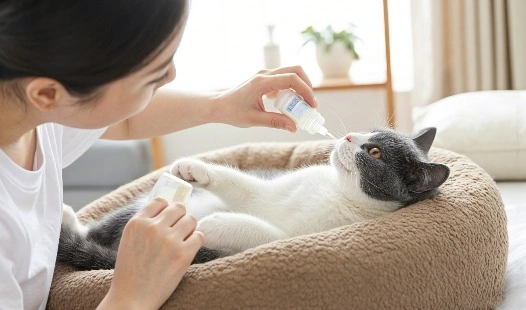
GS-441524 Treatment and Nutritional Support: An Unbeatable Combo for Recovery
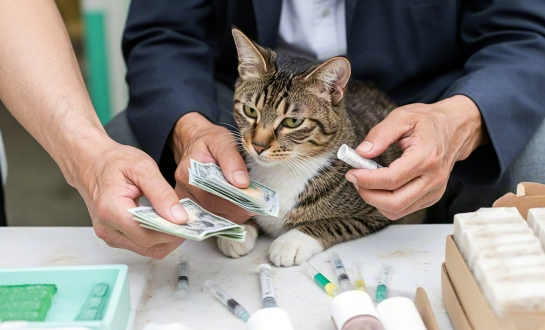
An International Buyer's Guide to GS-441524: From Order to Delivery

What Are the Side Effects of GS-441524? And How to Manage Them Effectively?













_副本_1758506507767.webp)
